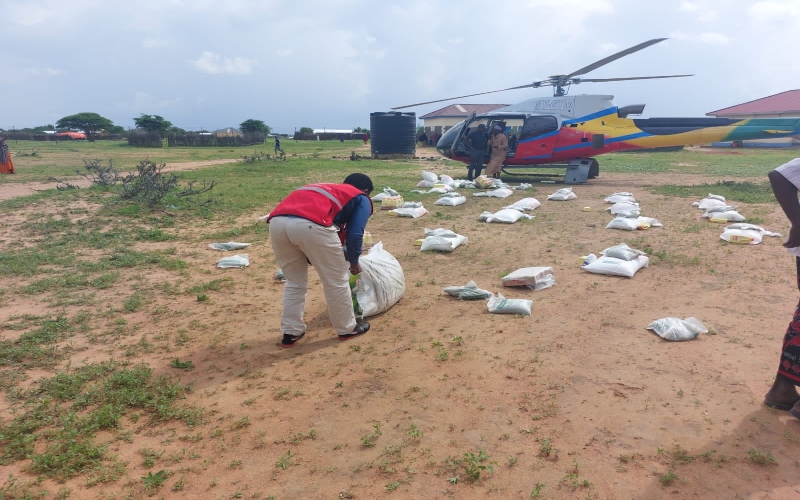Treasury CS Mbadi reaffirms Kenyan shilling stability, rejects claims of currency manipulation

Mbadi said the steadiness of the shilling reflects prudent macroeconomic management and growing investor confidence in Kenya’s economic trajectory.
National Treasury Cabinet Secretary, John Mbadi, has reaffirmed the stability of the Kenya Shilling, dismissing claims of currency manipulation and attributing its resilience to an 8 per cent rise in diaspora remittances, improved export earnings, and government reforms.
Following a visit by the Swedish Ambassador to Kenya, Håkan Åkesson, CS Mbadi, in a statement, said the steadiness of the shilling reflects prudent macroeconomic management and growing investor confidence in Kenya’s economic trajectory.
More To Read
- Kenyan shilling hits 17-month high at 128.96 against the dollar
- Mbadi confirms Treasury deliberately influencing shilling’s value against dollar
- Kenya’s financial outlook steady amid strong Treasury bill demand and stable shilling - CBK
- Kenyan shilling, Africa’s best-performing currency in 2024 - World Bank
- African governments urged to trade, transact in local currencies
- Kenyan shilling stable; dollar inflows match importer demand
He explained that recent reforms, including the procurement of fuel through government-to-government arrangements without exclusive reliance on the US dollar, have helped ease pressure on foreign exchange.
CS Mbadi highlighted that Kenya’s economy continues to expand at a rate of approximately 5 per cent, with government plans targeting 7 per cent growth to accelerate employment creation and broaden opportunities. He attributed this upward momentum to strong performances in key sectors, which remain central to the country’s economic transformation agenda.
He also invited Swedish investors to explore opportunities in manufacturing, green energy, and value addition for export-oriented industries. According to CS Mbadi, increased investment from Sweden would not only spur job creation and technology transfer but also strengthen bilateral trade, aligning with Kenya’s Bottom-Up Economic Transformation Agenda (BETA).
Ambassador Åkesson commended Kenya’s economic progress and reaffirmed Sweden’s readiness to deepen cooperation, emphasising the long-standing partnership between the two countries and their shared commitment to advancing collaboration.
Speaking during a press briefing on Tuesday, Mbadi said the shilling could strengthen to Sh118 to the dollar if allowed to trade freely amid higher inflows of the US currency.
This follows concerns from experts who say it is unusual for the Kenyan shilling to remain at the same level for a prolonged period, trading at an average of Sh128 to Sh131 against the US dollar, a stability some now claim may have been manipulated.
In the first quarter of 2024, the Kenyan shilling took its worst hit, significantly depreciating against the US dollar to trade at over Sh160 to the dollar in January, before gaining against the greenback to trade at Sh144 by mid-February, and later down to Sh127 in April 2024.
The currency has since been trading at an average of Sh128 to Sh131 to the dollar to date. This marks over a year of the Kenyan currency's stability.
This stability is now under scrutiny by the International Monetary Fund (IMF).
President William Ruto’s economic advisor, David Ndii, said that the current stability in the foreign exchange market is not driven by government policy.
“A lot of these debates and the IMF asking whether it is too stable or too unstable is basically witchcraft, this is basically witchcraft we economists do, which can go this way or that way, but the policymaker has to be pragmatic,” said Ndii.
Top Stories Today













































